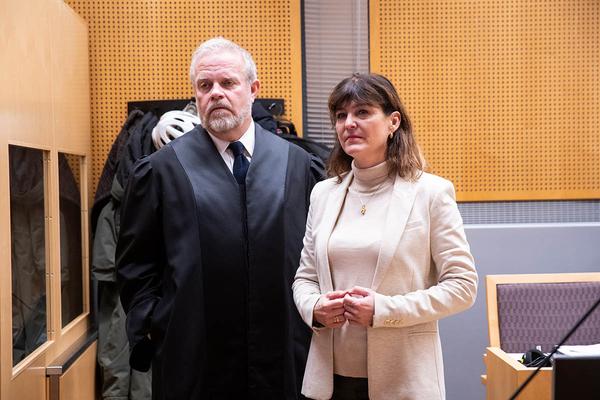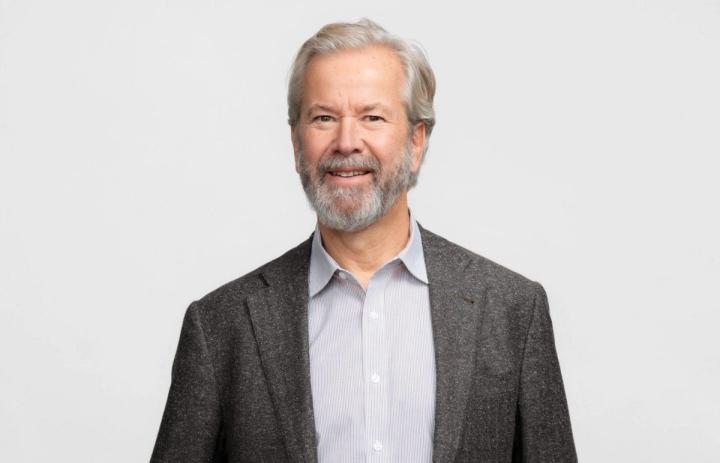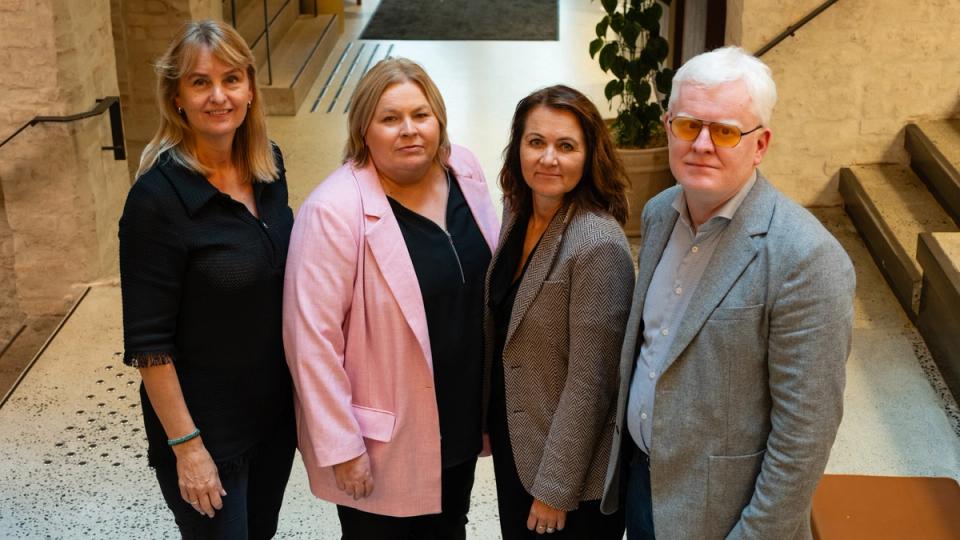18. mai 2016
The Economics of Independent Media

Conventional thinking will not be enough to help news organisations survive — still less thrive in — the revolution gripping […]
Conventional thinking will not be enough to help news organisations survive — still less thrive in — the revolution gripping the news business. Deep pockets and structures protecting journalistic independence will be essential.
I write this on the day the Independent’s printing presses fell silent. For more than 30 years, the newspaper had struggled with the increasingly difficult economics of serious news publishing. In the end the owners, the Lebedev family, simply didn’t have deep enough pockets to keep print going while investing in a digital future. Print died; long live digital.
The great Hollywood screenwriter, William Goldman, wrote of his business: “Nobody knows anything.” For anyone trying to manage a newspaper over the past 15 revolutionary years or so — never mind today — those words will have a resonance. Not because the CEOs and finance directors of media companies are clueless, but because the external content of our industry is sometimes so far beyond our control.
The digital guru, Emily Bell, vividly described the most recent transformation of the outside weather recently in a Columbia Journalism Review piece titled “Facebook is eating the world:”
“Something really dramatic is happening to our media landscape, the public sphere, and our journalism industry, almost without us noticing and certainly without the level of public examination and debate it deserves,” she wrote.
“Our news ecosystem has changed more dramatically in the past five years than perhaps at any time in the past five hundred. We are seeing huge leaps in technical capability — virtual reality, live video, artificially intelligent news bots, instant messaging, and chat apps. We are seeing massive changes in control, and finance, putting the future of our publishing ecosystem into the hands of a few, who now control the destiny of many.”
She is right. Facebook alone took revenues of $18 billion in 2015 — up 44% year on year. In the last quarter of last year Facebook’s advertising revenues soared 57%from the same period in 2014. If even Facebook is surprised by the amounts of cash washing into its coffers, how are the rest of us supposed to plan?
Conventional thinking goes out of the window.
Conventional thinking says it is profligate to make losses: profit is the key. James Murdoch famously ended a 2009 lecture with the ringing declaration that “the only reliable, durable, and perpetual guarantor of independence is profit.” The founder of the Independent, Andreas Whittam Smith, had a similar mantra for his newspaper in its early days.
But at the time James Murdoch spoke, his newspapers, The Times and Sunday Times, were losing money hand over fist — and were being subsidised by his father. A few years earlier, his own company launched a predatory price war to put the Independent out of business. The Independent made losses every single year since, but never lost its independence.
Most serious forms of journalisms over the years have been sustained by one form or other of subsidy. The reader has seldom in history paid enough to sustain the costly business of broadsheet news. The subsidy may have been in the form of advertising — but that model has, famously, fundamentally changed. Most often it has been an arrangement whereby profits from one company or individual have been transferred to make up the shortfall in a paper’s publishing balance sheet.
Tony O’Reilly kept the Independent afloat from the proceeds of his antipodean news chains. The Observer’s former owner and editor, David Astor, subsidised the paper’s losses for decades. Murdoch re-routed the profits of his tabloids into his broadsheets. The Guardian was the beneficiary of profits from the Manchester Evening News and AutoTrader. Amazon’s Jeff Bezos is investing in the Washington Post’s rebirth; the previous owners, the Grahams, simply didn’t have the cash. Ebay’s Pierre Ombidyar is financing the new web-only operation, the Intercept.
Everyone (bar a few print romantics) now accepts we must learn to be digital to survive — and also that the cost of innovation and experimentation is formidable.
Rupert Murdoch knows that, and has been prepared to lose substantial sums to get to the other side of the river bank. He started, and then closed, an iPad paper, the Daily, which cost $30 million to develop and $500,000 a week to operate. He bought MySpace for $580 million and sold it for $35 million six years later.
Were these profligate failures? Or were they bold investments in the future which didn’t work for reasons largely beyond his control? I tend to lean toward the latter camp: Whatever else you might think about Murdoch, he has consistently been willing to try new things — and to spend whatever it takes — in support of journalism.
Schibsted has the Tinius Trust. The Guardian’s equivalent is the Scott Trust, which was born in 1936 and is intended to see the Guardian through thick and thin times and to preserve its independence.
In monetary terms, the Scott Trust is no match for a News Corps or a Daily Mail and general Trust. In my time as editor we did not, alas, devise a new economic model — any more than anyone else has. But the Trust did carefully build up a reasonable endowment — in the end likely close to £1 billion.
Most endowments work on the principle that it is reasonable to spend up to five percent of the total endowment funds in any year — smoothed over a number of years. The Trust and the Board — mostly external appointees — have had to weigh whether the greater risk to the future of the Guardian lies in investing too much too fast, or too little too slowly.
It is a subject on which many people have an opinion. In one week recently I read that we had recklessly invested in an uncertain digital future — and also that talented developers were leaving the Guardian because we were moving too timidly.
Would Guardian Media Group (GMG) act the same if it were a conventional company with shareholders? Almost certainly not. All newspaper business models today are an act of faith. The Scott Trust and GMG’s act of faith has been faith in journalism.
It is a faith which has been sustained since the foundation of the Trust — and, arguably, since the birth of the Guardian in 1821. During that time there have been barely a dozen editors and, effectively, just one owner. That stability helps grow a strong journalistic culture — which is the first prerequisite for success.
But how much is “too much” or how cautious is “too slowly?” There is, as one Guardian commercial executive noted in late 2014, “no low-risk option.”
Within months — at times, even weeks — the external weather changes. Adblockers were a cloud in the sky in late 2014. Now they’re a considerable headache. But a much bigger — and newer — dilemma facing newspaper managements is whether to allow — or even encourage — others to distribute their content.
As Bell notes in her essay, digital natives such as Buzzfeed, Vox and Fusion have built their presence by working within new distribution systems, not against them.
But is that right for so-called legacy players? Can any newspaper with an eye to the long-term future really reject Facebook, Apple or Google, given that these three platforms practically are the internet for many of their users? That looks folly.
But being enthusiastically on these platforms is also fraught with risk, as Bell notes. Newspapers lose control of distribution. They don’t have any influence over the algorithms which reveal, or downplay, their content.
When Bell was at the Guardian as Head of Digital, she regularly walked into my office with amazingly radical predictions. Most of them seemed mad at the time. Some were. But many of them turned out to be spot on.
See how she conceives the future now: “Even maintaining a website could be abandoned in favour of hyperdistribution. The distinction between platforms and publishers will melt completely.”
Is she right? Well, she is now on the Scott Trust, which can offer advice if asked, but which leaves the day-to-day management of the Guardian to the team in charge. Luckily, we have a terrific editor and CEO. Each generation has challenges to solve. This is one of theirs.
The birth of the Independent in 1986 seemed — and was — dramatic at the time. Its death in print is a sad moment to note. But I suspect it may end up as just a footnote in the ultimate history of the whirlwind media transformation of our time.



